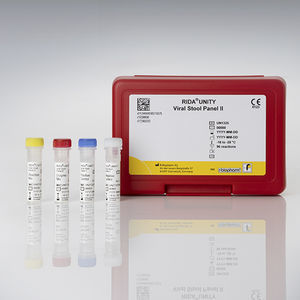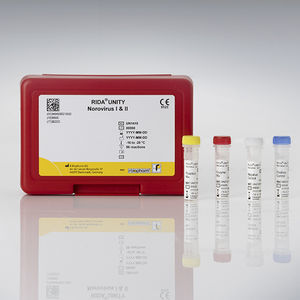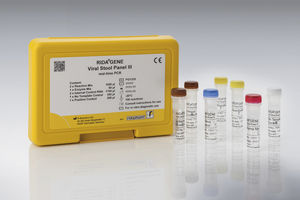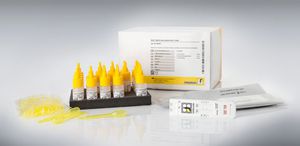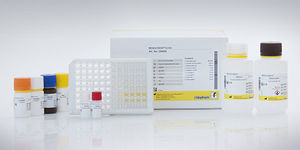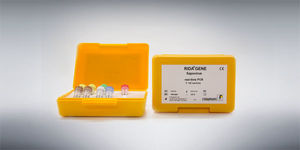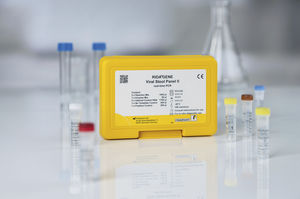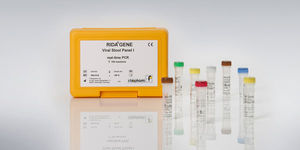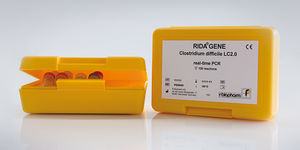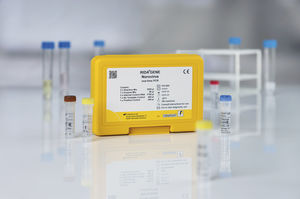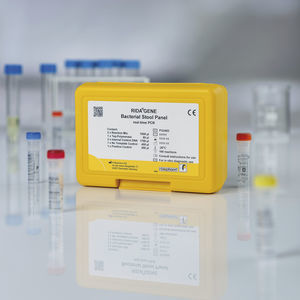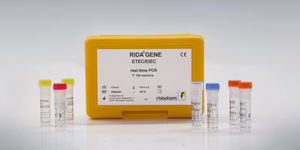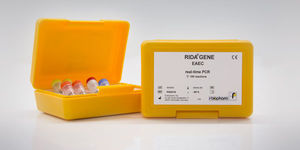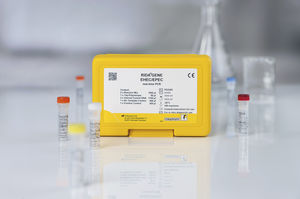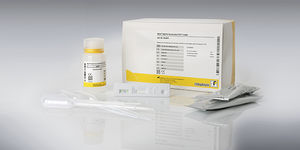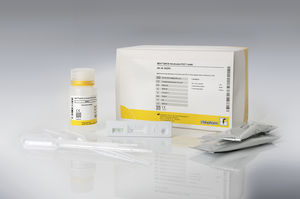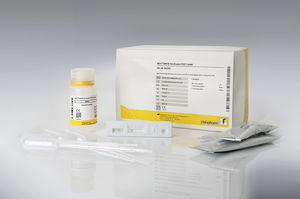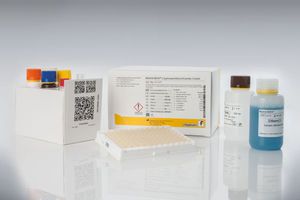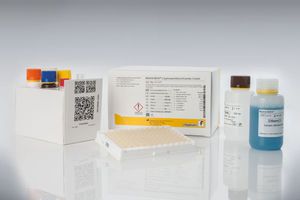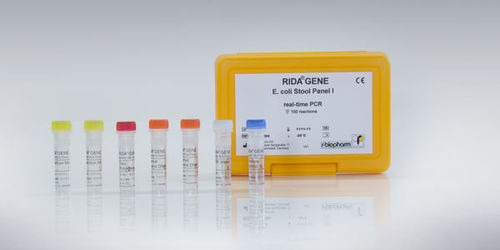
Escherichia coli test kit RIDA®GENEfor gastrointestinal infectionsbacteriaenterobacteriaceae
Add to favorites
Compare this product
Characteristics
- Applications
- for gastrointestinal infections
- Micro-organism
- bacteria, Escherichia coli, enterobacteriaceae, Shigella
- Sample type
- stool
- Analysis mode
- for real-time PCR
Description
For in vitro diagnostic use. RIDA®GENE E. coli Stool Panel I is a multiplex real-time PCR for the direct, qualitative detection and differentiation of genes encoding the virulence-factors of EPEC and STEC, EPEC in human stool samples.
RIDA®GENE E. coli Stool Panel I real-time PCR is intended for use as an aid in diagnosis of gastroenteritis caused by EPEC and STEC, respectively.
General information:
Escherichia coli (E. coli) are gram negative, facultatively anaerobic rod bacteria, which move by peritrichal flagellation and belong to the Enterobacteriaceae family. E. coli are part of the normal intestinal flora of humans and many farm animals and are generally nonpathogenic. Some E. coli strains are pathogenic to humans through the acquisition of certain virulence factors (e.g. genes for toxins).
The six known intestinal pathogenic E. coli: enterohämorrhagic E. coli (EHEC), enteropathogeic E. coli (EPEC), enterotoxic E. coli (ETEC), enteroinvasive E. coli (EIEC), enteroaggregative E. coli (EAEC) and diffusely adherent E. coli (DAEC) can be differentiated by the virulence factors.
Enterohämorrhagic E. coli (EHEC) are currently the most important intestinal pathogenic E. coli. Every year about 1000 cases of illness due to an infection with enterohaemorrhagic E. coli (EHEC) are reported in Germany.
EHEC are a subgroup of the Shiga toxin or Verotoxin producing E. coli (STEC or VTEC) and are capable to produce two cytotoxins, Verotoxin 1 and 2. Due to the similarity of the Verotoxins to the Shiga toxin of Shigella dysenteriae, the VTEC are also called STEC.
Catalogs
No catalogs are available for this product.
See all of R-Biopharm AG‘s catalogsRelated Searches
- Assay kit
- Solution reagent kit
- Blood assay kit
- Serum assay kit
- Immunoassay assay kit
- Plasma assay kit
- Infectious disease detection kit
- Diagnostic reagent kit
- Rapid lateral flow test
- Immunoassay rapid diagnostic test
- Molecular test kit
- Respiratory infection test kit
- Clinical assay kit
- Infectious disease rapid diagnostic test
- Cassette assay kit
- Lateral flow test kit
- COVID-19 assay kit
- ELISA assay kit
- Real-time PCR test kit
- Quality control reagent kit
*Prices are pre-tax. They exclude delivery charges and customs duties and do not include additional charges for installation or activation options. Prices are indicative only and may vary by country, with changes to the cost of raw materials and exchange rates.


